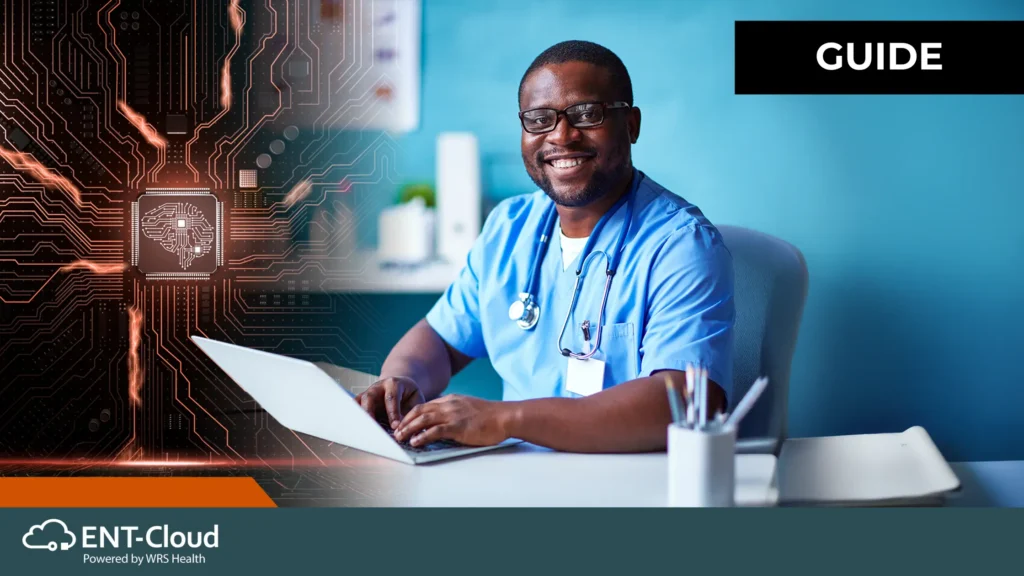Key Takeaways
- Strategic investments help ENT practice owners achieve cost-efficiency in otolaryngology while maintaining high standards of care.
- Outsourcing billing, credentialing, and compliance ensures clinical focus and consistent reimbursements.
- Leveraging ENT cost-saving software and a low-cost EHR for ENT improves profitability and workflow efficiency.
- Discover key strategies to avoid allowable mismatch and boost revenue.
You don’t need to be a financial expert to see the benefits. By focusing on a few key areas, you can ensure your practice operates like a well-tuned system—efficient, profitable, and patient-centered.
Here’s how a combination of strategic outsourcing, automation, and an ENT cost-saving software can streamline your operations, stabilize revenue, and help your practice thrive under financial pressure.
Table of Contents
1. Billing Services That Boost Cash Flow
ENT billing is complex, covering everything from diagnostic endoscopies to sinus surgeries and allergy testing. Each procedure has unique codes and modifiers, and even minor errors can result in delayed payments or denials.
Why this matters:
- ENT claims are among the most frequently denied due to coding complexity and modifier misuse.
- Missed or undercoded procedures mean thousands in lost reimbursements annually.
- Dedicated billing experts can bring cost-efficiency in otolaryngology by making sure claims are accurate, timely, and fully reimbursed.
A specialized billing platform can improve your first-pass claim acceptance rate and recover missed revenue through denial management. For example, optimizing your coding for balloon sinuplasty or audiology testing could reclaim tens of thousands in lost income each year.
Think of professional billing as your “revenue engine.” When it’s tuned correctly, every service you provide contributes directly to your bottom line.
2. Virtual Assistants to Strengthen Patient Communication
ENT practices handle a high volume of appointments, follow-ups, and post-procedure calls. A virtual assistant (VA) can take on these administrative tasks, keeping your in-office staff focused on patients instead of phone lines.
Why this matters:
- VAs can handle appointment reminders, insurance verifications, post-op check-ins, and prescription refills.
- Consistent follow-ups improve patient satisfaction and reduce no-shows.
- Your staff stays focused on clinical duties rather than multitasking.
Imagine if your VA handled all pre- and post-op instructions for sinus surgery patients or managed allergy testing follow-ups. That frees up several hours per week for your front-desk team and ensures patients always feel cared for.
3. A Top-Notch Marketing Service That Drives Patient Growth
Word of mouth is powerful in healthcare, but today’s patients look online first. Whether they’re searching for “ear infection treatment near me” or “ENT specialist for snoring,” your practice needs to show up in those results.
Why this matters:
- 77% of patients research providers online before booking an appointment.
- ENT practices with active digital marketing see stronger patient acquisition and retention.
- Marketing is most importantly about building trust and brand recognition, not just visibility.
Partnering with a marketing service familiar with ENT cost-saving software and HIPAA compliance helps you run efficient, high-ROI campaigns whether it’s optimizing your website for local SEO, managing reviews, and launching Google Ads for services like allergy treatment or sleep apnea care. They can also run reactivation campaigns for patients overdue for hearing tests or follow-up appointments.
Think of marketing as your digital clinic entrance. If it’s polished, visible, and welcoming, patients are far more likely to walk through your door.
4. Done-for-You Credentialing
Credentialing delays can stall your ability to bill payers for weeks or even months. With a low-cost EHR for ENT that integrates credentialing support, you can simplify the process and get your team billing-ready faster.
Why this matters:
- Every payer has different requirements for otolaryngology services.
- Delayed credentialing directly impacts your practice’s revenue cycle.
- Credentialing specialists manage every step—from CAQH updates to payer follow-ups.
If you’re expanding your ENT group or adding audiology services, done-for-you credentialing ensures each provider gets payer approval quickly. That means faster reimbursement, smoother onboarding, and fewer interruptions.
5. MIPS Compliance Training That Pays Off
If your practice bills Medicare, you can’t ignore MIPS (Merit-based Incentive Payment System). Done wrong, it can cost you up to 9% in penalties. Done right, it can actually increase your reimbursements. The challenge is staying up-to-date and training staff to capture quality data accurately.
Why this matters:
- Noncompliance is expensive, and penalties eat directly into your bottom line.
- Accurate data capture can instead earn you payment bonuses.
- ENT-specific measures such as documentation of chronic sinusitis or surgical outcomes are often overlooked without proper training.
Invest in a MIPS compliance service that focuses on ENT-relevant quality measures. Not only will this protect your revenue from penalties, but it will also improve your reporting accuracy and operational confidence.
MIPS doesn’t have to be a headache. Done right, it can become another way your practice gets rewarded for excellence.
The Role of a Low-Cost EHR for ENT in Lean Practice Management
When your goal is cost-efficiency in otolaryngology, your EHR should be a solution, not a strain on your budget. The right partner helps you manage patient data, billing, reporting, and compliance all in one place without the hefty licensing fees.
Your ENT practice doesn’t need a massive budget to stay profitable, it needs smart systems and reliable partners. By combining low-cost EHR for ENT solutions with outsourced billing, credentialing, marketing, and virtual assistance, you can build a lean, resilient, and thriving practice.
Think of these strategies as preventive care for your business: proactive, efficient, and designed to protect your financial health for the long run.











